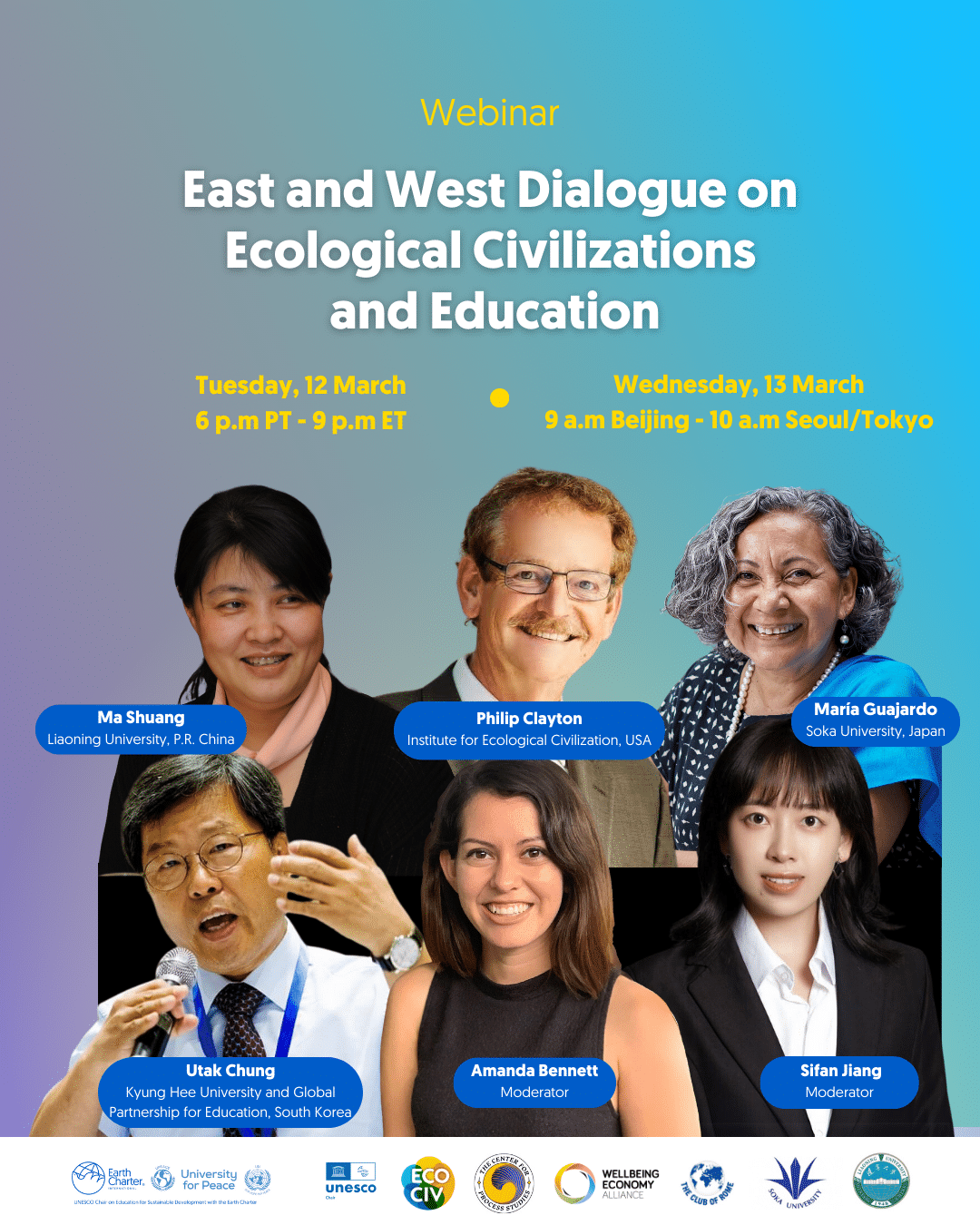Time:2024-02-24 Source: Author: Views:
Many people around the world, including civil society, scientists, youth, and policymakers are concerned about the future of our common home and the choices we must make today to ensure that we change our course and stop contributing to our current planetary crises. To do this, all decision-makers, including governments, educational institutions, the private sector, and individuals must come together to achieve our global goals for justice, sustainability and peace, guided by common values. Through this intercultural dialogue, we will explore what it means to work towards an ecological civilization and the implications of that for education, specifically higher education.
In this webinar, we aim to clarify the link between ecological civilizations and education. To do so, this panel will address the following questions:
1. What does the term Ecological Civilization mean?
2. How do you imagine the kind of education that fosters ecological civilizations? What are some specific examples of what is currently being done, or what could be done, towards this vision in the context of education?
Speakers:
Ma Shuang
Professor, Director, International Exchanges Department, Liaoning University, P.R. China
Utak Chung
Adjunct professor of Kyung Hee University, and former Director of the UNESCO Asia-Pacific Centre of Education for International Understanding – APCEIU, South Korea.
Maria Guajardo
Professor, Leadership Studies, Soka University, Japan
Philip Clayton
President of the Institute for Ecological Civilization (EcoCiv.org) and Ingraham Professor at Claremont School of Theology, USA
Moderators:
Amanda Bennett and Sifan Jiang, Earth Charter International

Click here for more details: East and West Dialogue on Ecological Civilizations and Education - Earth Charter
Chongshan Campus: No. 66, Chongshan Middle Road, Huanggu District, Shenyang Postcode: 110036
Puhe Campus: No. 58, Daoyi South Street, Shenbei New District, Shenyang Postcode: 110136
Wusheng Campus: No. 38 Youth Street, Baita District, Liaoyang City Zip code: 111000
Copyright by Liaoning University, Shenyang, China
